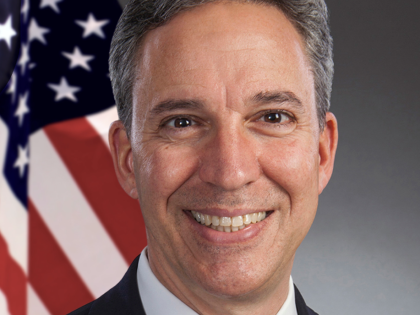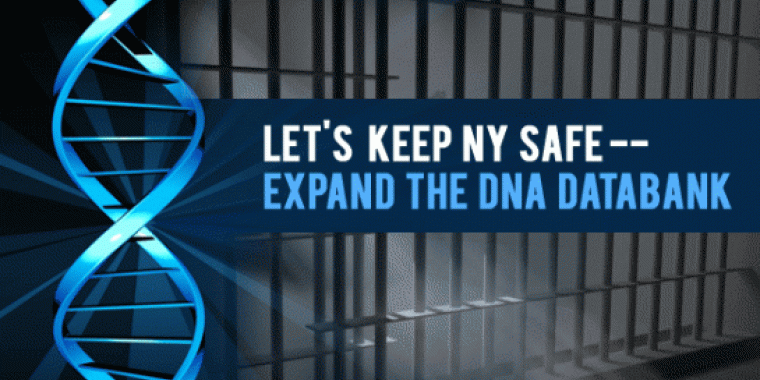
Senate Passes DNA Databank Expansion Bill
Jack M. Martins
February 6, 2012
-
ISSUE:
- Crime

Legislation Would Enact Governor's Proposal to Include Misdemeanors
The New York State Senate passed legislation for the largest expansion of the state’s DNA databank since it was created in 1994. The legislation mirrors the databank expansion plan proposed by Governor Cuomo in his Executive Budget to require people convicted of all felonies, as well as all misdemeanors in the penal law to submit DNA samples.
Under the existing law, people convicted of about half the crimes that are committed are required to submit DNA samples, including every penal law felony and just 36 misdemeanor crimes in the penal law. The legislation would expand that list to include all felonies in state law and every penal law misdemeanor. It is projected that the expansion would add about 46,000 individual DNA samples a year to the databank.
“This will enhance our state’s ability to fight crime. The measure makes our state safer by giving law enforcement another tool with which to prevent and solve crimes,” said Senator Jack M. Martins, who supported the legislation.
“As a crime fighting tool, DNA is the 21st Century equivalent of a fingerprint,” Senate Majority Leader Dean G. Skelos said. “Senate Republicans fought to create the databank 18 years ago and we have successfully worked to expand it because it is the most powerful law enforcement tool to catch and prosecute criminals and protect victims. The Senate is partnering with the Governor to expand the databank and we have strong support from the law enforcement community and victims advocacy groups, and I hope the Assembly will join us in passing this measure to improve the safety of our citizens and communities.”
The DNA databank expansion bill (S.5560A) proposal is supported by law enforcement organizations across the state, including the New York State Sheriffs Association, District Attorneys Association of the State of New York, the New York State Association of Chiefs of Police, the New York State Troopers PBA, Downstate Coalition for Crime Victims, Joyful Heart Foundation, the Safe Horizon victim assistance organization and many other law enforcement groups throughout the state.
Since its inception, DNA stored in the databank has been used to identify perpetrators in about 10,000 crimes, including 900 murders and 3,500 sexual assaults. Since 2006, when the DNA databank was expanded to include 36 misdemeanors, law enforcement agencies have used the information to convict 1,460 criminals.
Senate Republicans pushed for establishment of the DNA databank in 1994. Since then they have enacted half a dozen laws to expand and improve the databank, most recently in 2006, with a law sponsored by Senator Skelos to include all DNA from those convicted of all felonies and 17 misdemeanor offenses.
The state’s DNA databank has transformed criminal investigations and prosecutions to make them more accurate and effective, as well as helped to exonerate the innocent. However, DNA is only collected in approximately 46 percent of crimes because current law does not include the collection of DNA from all those convicted of crimes, such as some misdemeanors. This has reduced law enforcement’s ability to resolve investigations as quickly and enabled some criminals to remain free to commit more crimes, sometimes with devastating consequences.
The bill was sent to the Assembly.
Share this Article or Press Release
Newsroom
Go to NewsroomLewis Licht
May 20, 2016

